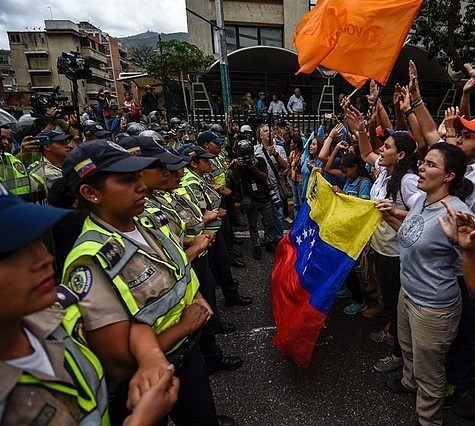
Venezuela’s Economic Crisis Makes Way For Acute Starvation
As per the revelation by annual national survey, the woes of the South American nation of Venezuela has reached a shocking stage. The survey showed nearly three-quarters of respondents losing an average of 19 pounds between 2015 and 2016. This is just part of the sad stories plaguing the Latin American nation for a long time now. The country’s National Survey of Living Condition is overseen by three major Venezuelan universities and other research groups.
Venezuela has been suffering from an economic crisis from 2014, after oil prices around the world plunged. This along with the government’s short-sighted fiscal policy and overreliance on unaffordable imports that it can’t afford to keep up, the economy has ground to a halt.
The International Monetary Fund estimated Venezuela’s inflation to rise up to 1,660 per cent this year and 2,880 per cent next year. Malaria is ravaging a country that was the first in the world to eliminate the disease in its populated areas.
Any reason for this once prosperous Latin American nation to suffer like this? Several reasons can be given. One that first comes to mind is the plunging of global oil prices since 2014, wreaking havoc on the country’s economy.
From 2004 till about 2014, rising global oil prices gave Venezuela the most continuous oil revenue dividend it has ever received. Because of the ultra -socialist policies of the then president Hugo Chávez, the government used the surge in revenue for ruthless social spending.
The country relied only on oil exports doing little to invest in domestic production. As expected, when oil prices dived it took Venezuela’s economy with it.
As per Alejandro Velasco, a scholar of Latin American history at New York University, Chávez’s model of socialism aggravated the country’s oil dependency-
His system of nationalizations and regulations really strangled the already meager productive apparatus of Venezuela…
Another scholar, Ricardo Hausmann the director of the Center for International Development at Harvard's Kennedy School, notes at the New York Times that Chávez’s government failed “to put money aside for a rainy day but instead, over-spent and quintupled the public foreign debt.”
Coupled with that was Chávez’s bid to make Venezuelan democracy more participatory. This decision caused the state to pour large number of resources into election campaign seasons since the turn of the millennium.
The government’s response to the decline in oil prices just worsened the situation. When the country was rocked by lower oil prices, imports dropped, and people used their money to heavily purchase products leading to scarcity. Now people can hardy avail two meals a day.
The government then printed out more money to ensure people had enough. But ultimately the combination of the huge increase in the money supply and the sluggish rate of imports powered inflation further. All these missteps exposed Chavez’s so-called socialist utopia to be a nightmare.